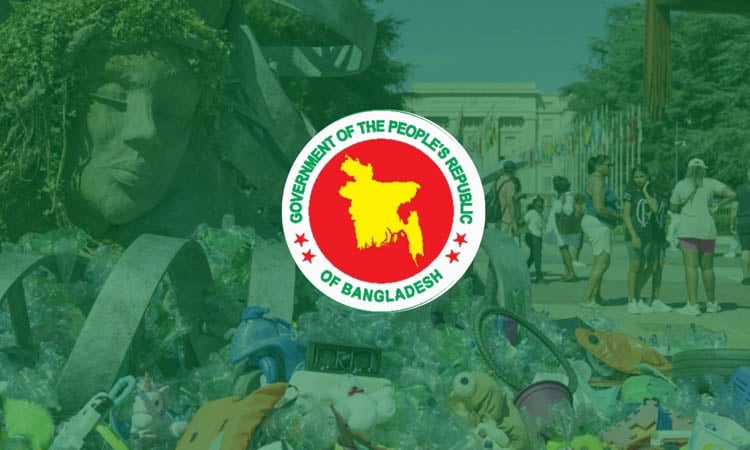News Flash
News Flash

DHAKA, Aug 14, 2025 (BSS) - Bangladesh has categorically rejected the latest Chair’s Draft of the proposed Global Plastics Treaty, demanding stronger measures against plastic pollution, and stating that it falls far short of the mandate set by United Nations Environment Assembly (UNEA) Resolution 5/14 to establish an internationally legally binding instrument to end plastic pollution.
The rejection was announced during the second part of the fifth session of the Intergovernmental Negotiating Committee on Plastic Pollution (INC-5.2), held on August 13, 2025, at the Palais des Nations, Geneva, Switzerland.
According to the Ministry of Environment, Forest and Climate Change, the draft “represents a weak and inadequate outcome” that excludes supply-side measures and fails to address the full life cycle of plastics.
The ministry noted that it does not address health impacts, chemicals of concern, or the waste hierarchy, and imposes no robust obligations to curb transboundary plastic pollution.
The draft also lacks provisions for reliable means of implementation, instead relying on a “convoluted and voluntary approach” that ignores the urgency of the global plastic crisis, a ministry press release said.
Bangladesh underscored that the treaty’s core must confront harmful chemicals in plastics—where scientific evidence most strongly links to health risks—and address emissions and primary plastic production, given the harms plastics cause throughout their life cycle.
“This text does little to protect human health or the environment from plastic pollution. It reduces the treaty to a waste management framework, shirking responsibility for plastic producers and omitting binding measures to phase out the most harmful plastic products,” the ministry press release said.
Bangladesh reaffirmed that without substantial and meaningful amendments, it cannot support the draft, and called on negotiators to significantly raise ambition in line with the UNEA mandate.
Earlier the same day, Syeda Rizwana Hasan, Adviser to the Ministries of Environment, Forest and Climate Change and Water Resources, called for stronger global partnerships and targeted resources to combat plastic pollution.
Speaking at an Informal Ministerial Roundtable during INC-5.2 in Geneva, she highlighted Bangladesh’s vulnerability as a downstream country and urged a global framework to address transboundary pollution.
She stressed promoting circular economy models, plugging waste management leakages, fostering sustainable product design, and ensuring a just transition for waste workers.
Emphasising the environmental and health dimensions, Rizwana called for ambitious, cooperative action to phase out harmful plastics through institutionalised global cooperation.